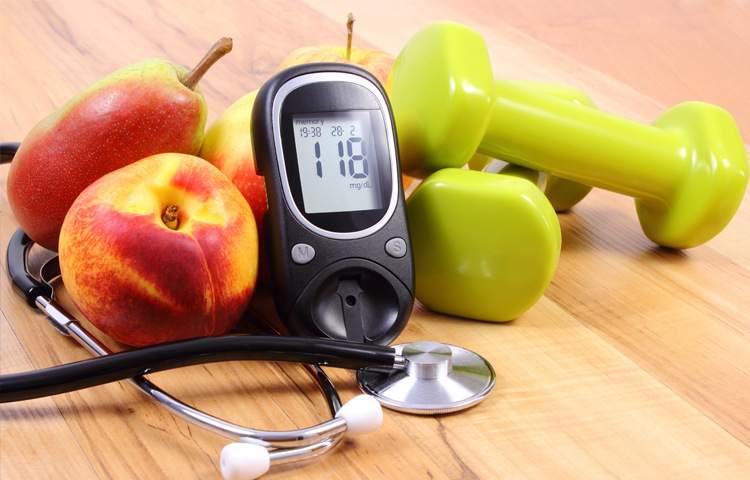In my last post, we discussed insulin synthesis, secretion, and its defects. In this section, we will see especially relevant information on insulin resistance and ways to reverse it. We know that whatever the food we eat, it gets converted to glucose. Consequently, the pancreas produces insulin in response. When our body cells cannot utilize insulin, therefore, glucose cannot get converted to energy. This insensitivity of body cells is nothing but insulin resistance. Insulin resistance is not a disease. It is a syndrome where body metabolism gets abnormal.
Causes of Insulin Resistance
Research says, 1/4th of the population prone to develop chances of insulin resistance genetically. The exact cause of insulin resistance is not fully understood. Probably, there is one or more factors causing the insulin resistance;
- The family history of diabetes, Hypertension, cardiovascular diseases
- Obesity
- Stress
- A high-calorie diet
- Inadequate physical activity: Lack of Exercise
- High dosage of steroids for a longer period
- Polycystic ovary syndrome, progesterone deficiency and heavy periods in women
- Overproduction of insulin by the pancreas
- Smoking
- Sleep deprivation
- Accelerated aging
- High levels of inflammation
More is the sensitivity of cells, less is the requirement of insulin to bring down glucose levels. Opposite more is the resistance to insulin, more is the secretion of insulin by the pancreas to tackle blood glucose. As a result, it provides an extra burden on the pancreas. Furthermore, impairment and worsening of beta cells.
Reverse insulin resistance
Reversing insulin resistance is immensely important. This problem can be minimized through aggressive lifestyle changes, diet control, physical activities, few supplements and stress management. More is the insulin sensitivity, the healthier you are.
Diet control
First of all, emphasize more on unprocessed and low refined food. Starches in adequate quantity are good. No to high-calorie diets like desserts, candy, cakes, soft drinks, sweetened yogurt, honey, dried fruits, and fruit juice. Carbohydrates intake should be as much as 40 TO 50 % of the diet.
Proteins contribution should be around 20 to 30 % in your diet. Protein-rich food like red meat, seafood, eggs, high fiber diet, food containing omega-3, soy products improves insulin sensitivity.
Also, fats intake must be around 30% for the proper balance of diet. Avoiding saturated fats like processed meat, fried and baked food, dairy products enhance insulin sensitivity. Seafood, olive oils, nuts, and vegetable seeds are useful.
So, combining adequate proteins, fats and carbohydrates can control the glycemic load. Meal habits like taking a meal every 4 hours (rather than 2 heavy meals i.e. Lunch and Dinner) a day and finishing meal at least 2 to 3 hours before bed helps to keep glucose-insulin homeostasis.
Finally, more focus on regular consumption of anti-inflammatory foods, detoxifying foods, anthocyanidins, antioxidants, phytonutrients helps to prevent and reverse diabetes and insulin resistance.
Yet, dietary measures is a very vast topic to cover. Therefore, the above information is confined to the title only.
Dietary supplements
Regular use of vitamin E, Vitamin B, Minerals (Calcium, Chromium, Magnesium, Vanadium, Zinc) is recommended to be a part of your regular diet. Magnesium deficiency causes insulin resistance. Hence, a magnesium-rich diet like green vegetables, legumes and nuts should be consumed as regular diet intake in addition.
Exercise
Exercise is utmost critical for reversing insulin resistance. Regular exercise will help to manage diabetes. Vigorous exercise, brisk walking, gym workouts, Aerobics, Yoga, etc are very much helpful in reducing body fats. The time duration for exercise depends on your stamina. At least 30 to 60 minute is approximate. Exercise significantly improve insulin sensitivity.
Adequate Sleep
It seems like one night of sleep deprivation as much as 6 months on a high-fat diet. Both could impair insulin sensitivity to a similar degree, according to research. A good night’s sleep can do wonders. Aim for 7 to 8 hours of sleep each night. Figure out the reasons for bad sleep. Either it is stress or maybe diet deficiency.
Managing stress
Stressful situations put on hold all non-essential functions inside the body temporarily. Cortisol release signals insulin to restrict glucose uptake to the cells. Also, the liver releases an excess amount of glucagon into the bloodstream. While we feel stressful, this situation gets activated and repeated. Furthermore, continuous excess glucose levels lead to insulin resistance by cells. Stress management can be achieved through Yoga, physical exercise, breathing therapy, laughter therapy, meditation, spiritual living and massage on a regular basis.
In this section, we have not discussed the necessary medications for reverse insulin resistance. A number of medications with a specific class and its own effects are available like biguanides, Thiazolidinediones, Alpha-glucosidase inhibitors which helps to improve insulin sensitivity.
